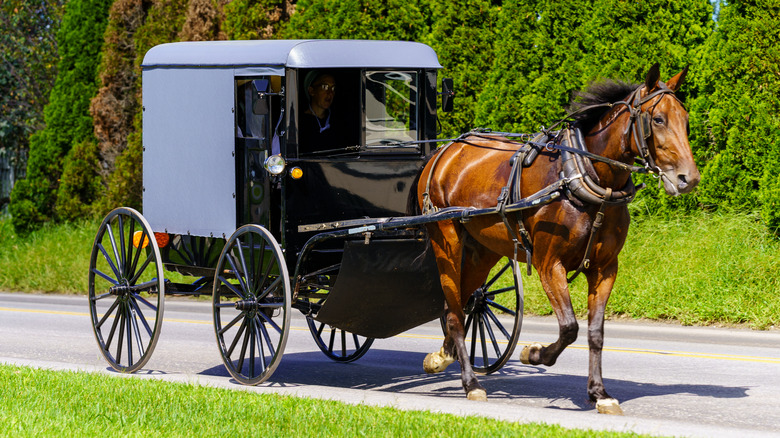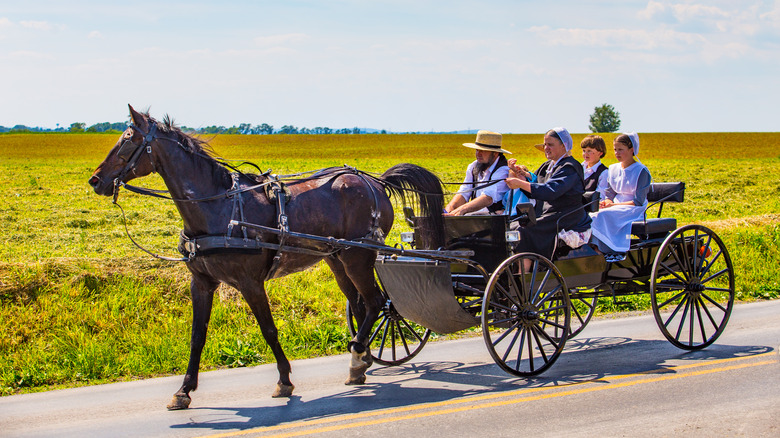What It Really Means To Be Excommunicated From The Amish
The Amish are often revered for their tight-knit communities and strong work ethic. They are also known as strong believers in the Bible, and their religious beliefs are evident in every facet of their lives.
Although it may seem like the Amish are forced to live a "plain" life, every member is given the opportunity to leave the community before they are baptized. As reported by Amish America, baptism is not a decision that is taken lightly, and Amish people are "aware that their baptismal commitment means accepting the Ordnung and the consequences ... if it is broken."
The Ordnung is a set of written or oral rules and guidelines that community members are expected to follow. All Ordnungs include rules about hairstyles, clothing, and the prohibition of technology. Every Amish community makes adjustments to the typical Ordnung rules. However, all baptized members are expected to follow their community's rules or face excommunication.
Amish America reports excommunication is generally a "last resort," after all other forms of discipline are exhausted. Members in violation of the Ordnung are usually warned and given an opportunity to comply with the rules. However, if they refuse, the congregation is informed of the continued violations, and they must vote on whether to excommunicate the accused. Members cannot be excommunicated unless the decision is unanimous.
Excommunicated members must leave the Amish community, but it does not necessarily mean they have to cut all ties with their family.
What actually happens when someone is excommunicated by the Amish
Excommunicated members of the Amish are also shunned, which limits their interactions with their family and former community.
As reported by Exploring Amish Country, the Amish's practice of shunning is based on their religious beliefs, more specifically 1 Corinthians 5:9-12, which states believers should separate themselves from nonbelievers and should not share meals with them. However, the degree of shunning is different in each community.
Communities that permit more mild forms of shunning allow excommunicated members to attend Amish community gatherings, including weddings and funerals. However, they are not allowed to share meals at the same table with members in good standing.
In more liberal communities, excommunicated members are also allowed to interact socially with current members, but they are not allowed to do business with each other. Exploring Amish Country reports members in good standing are allowed to give excommunicated members money or gifts, but they cannot receive money or gifts from those who are excommunicated.
In more conservative communities, members who are excommunicated, and therefore shunned, are not permitted any contact with members of their former community, including their family.
Exploring Amish Communities reports shunning and excommunication are both directly linked with baptism, and therefore do not apply to people who leave the community before they are baptized. Members of the Amish community who have not yet been baptized, who are usually children and teens, are also allowed to interact with shunned members.

